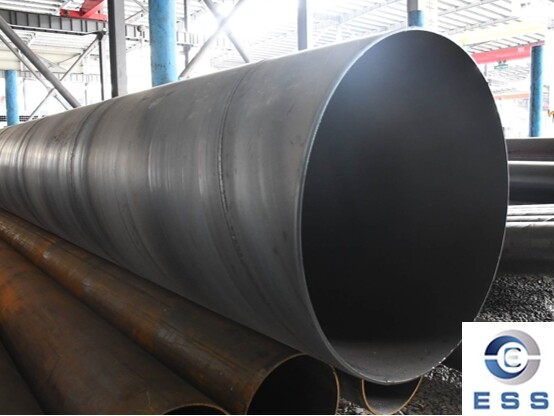
The material grade of carbon
steel pipe has an important influence on the quality and service life of
the pipe. Choosing the right material grade can ensure the stability and safety
of the pipe in different environments and applications. For example, Q345B is
often used in structures such as bridges and ships that need to bear large
loads due to its high strength and good mechanical properties at low
temperatures.
Carbon content
The carbon content is one of the main
parameters that determine the material grade of carbon steel pipe. Generally
speaking, pipes with high carbon content also have high strength and poor
toughness, while pipes with low carbon content have high toughness and poor
strength. Internationally, steel pipes with a carbon content of less than 0.30%
are generally called mild
steel tube, steel pipes with a carbon content between 0.30%-0.60% are
called medium-carbon steel pipes, and steel pipes with a carbon content between
0.60%-1.00% are called high-carbon steel pipes.
Mechanical performance parameters
The mechanical performance parameters such
as strength and toughness of carbon steel pipes are also one of the important
parameters of material grade. Commonly used mechanical performance parameters
include tensile strength, yield strength, elastic modulus, etc. Mild steel
pipes have lower mechanical properties, poor strength and toughness, while high
carbon steel pipes have better mechanical properties, high strength and
toughness.
Common standards
There are many international standards for
the grade and performance requirements of carbon steel pipes. Among them,
European standard EN, American standard ASTM, German standard DIN and Japanese
standard JIS are more commonly used standards. Different standards have
different regulations for the grade classification, mechanical performance
parameters, chemical composition and other aspects of pipes.
China's carbon steel pipe material grade standards usually include the following:
GB/T8162: Seamless
steel pipe for structure
GB/T8163: Seamless steel pipe for conveying fluids
GB3087: Seamless steel pipe for low and medium pressure boilers
GB5310: Seamless steel pipe for high pressure boilers
GB9948: Seamless steel pipe for petroleum cracking .
These standards specify the requirements
for the chemical composition, mechanical properties and manufacturing process
of carbon steel pipes, ensuring the quality and reliability of the products.
Common material grades
The following are some common carbon steel
pipe material grades and their uses:
1. Mild steel pipe: Q195, Q215, Q235, etc.,
usually used in construction, bridges and other fields.
2. Medium carbon steel pipe: 20#, 45#,
40Cr, etc., usually used in mechanical processing.
3. High carbon steel pipe: 55#, 60#, 65#,
etc., usually used in spring manufacturing and other occasions.
Summary
In general, factors such as the material
grade and mechanical performance parameters of carbon steel pipes will directly
affect their use effect. Therefore, when purchasing and using carbon steel
pipes, it is necessary to select the appropriate material grade and
specification model according to actual needs.













 Eastern Steel Manufacturing Co.,Ltd not only improve product production and sales services, but also provide additional value-added services. As long as you need, we can complete your specific needs together.
Eastern Steel Manufacturing Co.,Ltd not only improve product production and sales services, but also provide additional value-added services. As long as you need, we can complete your specific needs together.










